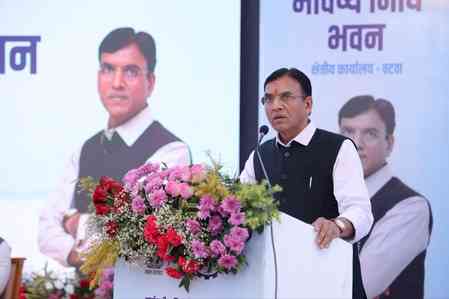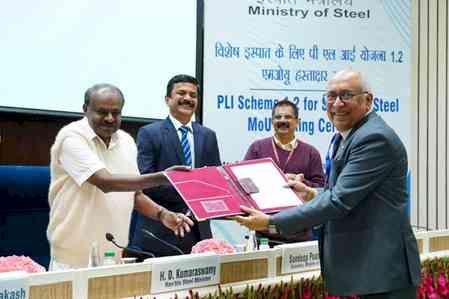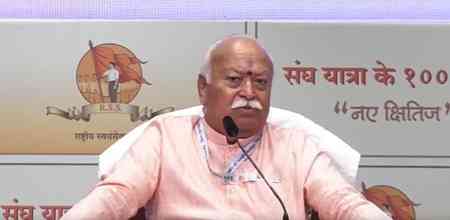Industry Quotes on GST Reforms

V. Govindarajan, Founder and Managing Director, Aarthi Scans and Labs
“Aarthi Scans and Labs welcome the proposed GST reforms that reduce the tax rate on diagnostic kits, reagents, glucometers, and test strips from 12% to 5%. Diagnostics lies at the heart of both preventive and curative healthcare, and any initiative that lowers patient costs while enabling providers to uphold the highest standards of quality is a progressive step. By easing the tax burden on these essential tools, the reforms will make diagnostic services more affordable, encourage timely testing, and ultimately lead to earlier detection and improved health outcomes. Equally significant is the exemption of GST on health and life insurance, a move that will ease the financial burden on patients and families, promote wider adoption of insurance coverage, and ensure that healthcare is not only accessible but also sustainable in the long run. As one of the country’s leading diagnostic providers, we see these reforms as catalysts for strengthening India’s healthcare infrastructure. We remain committed to passing on these benefits to patients nationwide.”
***
Jignesh Ghelani, Partner, Dhruva Advisors
“One of the key areas of dispute under the Goods and Services Tax regime has been classification. The customs tariff, which is modelled on the Harmonized System of Nomenclature, forms the basis for classification under Goods and Services Tax. This is intended to be a scientific and objective process, but the existence of multiple rates and scope for rate arbitrage has led to significant interpretational issues.
One of the stated objectives of the current rate rationalization is to reduce such classification disputes. For example, auto parts are now brought uniformly under eighteen percent, resolving past uncertainty such as whether a part is taxed independently or as part of the vehicle. Other non-alcoholic beverages have been moved to forty percent, eliminating overlaps with concessional categories. All Indian breads including roti, khakhra, chapati and pizza bread are now exempt, also with a view to address classification issues.
Another principle applied is the uniform treatment of similar goods. For example, televisions and monitors are now taxed at eighteen percent regardless of screen size. All batteries under heading 8507 are also taxed at eighteen percent. Ultra high temperature treated milk has been exempted, in line with other forms of milk, while plant based milk drinks including soya milk drinks are taxed at five percent. Food preparations not elsewhere specified under heading 2106 have also been standardized at five percent.
This rationalization is a welcome move and will provide relief to taxpayers. However, classification related disputes may still arise. Businesses should revisit their classification, remap stock keeping units, align enterprise resource planning systems and review contracts. With fewer slabs and a larger rate gap, mistakes in classification can have material consequences. Therefore, a careful and updated approach to classification is essential.”
***
Dr. Anish Shah, Group CEO & MD, Mahindra Group
“The next-generation GST reforms announced today mark a defining moment in India’s journey towards building a simpler, fairer, and more inclusive tax system. By moving to a streamlined two-rate structure and focusing on essentials that touch the lives of every citizen- from food, health, and insurance to agriculture and small businesses -the Government has reaffirmed its commitment to Ease of Living and Ease of Doing Business. The rationalisation measures will not only provide immediate relief to households but also strengthen key sectors such as automobiles, agriculture, healthcare, renewable energy, and MSMEs - all of which are vital to job creation and sustainable growth. The correction of long-pending inverted duty structures in critical industries is welcome.
At Mahindra, we view these reforms as transformative. They simplify compliance, expand affordability, and energise consumption, while enabling industry to invest with greater confidence. This bold step is in line with the vision articulated by the Hon’ble Prime Minister of building a citizen-centric, future-ready Bharat. It strengthens India’s economic foundations and will help drive the next phase of equitable and inclusive growth- journey towards Viksit Bharat @2047.”
***
Rajesh Jejurikar, ED & CEO -Auto and Farm Sector, M&M
“We applaud the Government for this landmark GST rationalisation, which will have a far-reaching positive impact across the automotive and farming sectors . The move makes tractors and farm machinery more affordable for farmers, reduces costs for commercial vehicles and improves accessibility for personal mobility through rationalisation of rates across all SUVs. Together, these measures are expected to stimulate demand, and drive inclusive growth across the entire ecosystem.
We also appreciate the continuation of the 5% GST rate on EVs, which is a critical enabler of India’s clean mobility vision. This measure will further accelerate the adoption of electric vehicles and reinforce India’s leadership in sustainable, green transportation.”
***
Aasif Malbari, Chief Financial Officer, Godrej Consumer Products Ltd
"We welcome the government’s initiative of lowering taxes to boost consumption. This is a positive trigger for demand and strong driver of volume growth. This move will ultimately contribute to overall economic momentum. GCPL has leading soap brands such as Cinthol and Godrej No.1 and hence welcomes this move. We are fully committed to ensuring that the GST rates reduction benefits are passed on to consumers." - Aasif Malbari, Chief Financial Officer, Godrej Consumer Products Ltd
***
Ashok P. Hinduja, Chairman, Hinduja Group of Companies (India)
“My compliments to PM Modi ji and FM Nirmala ji for announcing the most impactful reform to light up the festive season ahead. The GST Rate cuts announced across the board augur well for the Indian Economy as they will support India’s macroeconomic stability by spurring demand at the very grassroots level. This move was a much-needed consumption booster to cushion the global economic headwinds resulting from the lopsided tariff regimes being pushed by the US. It will have a cascading positive effect on several adjacent sectors, both upstream and downstream. To achieve the vision of Viksit Bharat @ 2047, the nation needs several social security nets for citizens. Steps like reducing GST to NIL on Life and Health Insurances will prove to be revolutionary in this regard. I hope the GST Process Compliances also stand simplified.”
***
Ashishkumar Chauhan, MD & CEO, NSE
“I congratulate the Hon’ble Prime Minister and the Hon’ble Finance Minister on the newly announced GST reforms. These reforms will certainly improve economic growth rate even further. The introduction of GST itself was one of the most significant economic reforms in India’s history, laying the foundation for a unified, transparent, and efficient tax regime. The latest measures build on that foundation and take it further.
These announcements will:
• Reduce the overall tax burden on citizens and businesses, thereby boosting profitability, productivity, and investments that drive India’s economic growth.
• Reflect the strong confidence in India’s fiscal stability and long-term growth trajectory.
• Strengthen tax compliance by simplifying structures and encouraging broader participation in the formal economy.
• Provide relief to small businessmen by keeping them outside the GST net, freeing their energy and focus to expand business operations rather than deal with tax administration.
• Ease the cost of living for the poor and middle class, as the prices of essential goods used in daily life will become more affordable and also improve compliance.
Overall, this is a confident and forward-looking reform package, signaling that India is well on course for sustained and rapid economic growth. The capital markets welcome these steps and stand ready to support the next phase of India’s development journey.”
***
Shailesh Chandra, President, SIAM
“Automobile Industry welcomes the Government’s decision to reduce the GST on vehicles to 18% and 40%, from earlier rates of 28% to 31% and 43% to 50%, respectively, especially in this festive season.
This timely move is set to bring renewed cheer to consumers and inject fresh momentum into the Indian Automotive sector. Making vehicles more affordable, particularly in the entry-level segment; these announcements will significantly benefit first-time buyers and middle-income families, enabling broader access to personal mobility.
We also thank the Government of India for continuing with GST rate of 5% on Electric Vehicles, which will help sustain the ongoing momentum towards sustainable mobility.
Furthermore, the resolution of classification interpretations and the correction of the inverted duty structure will greatly streamline business processes across the automotive industry, supporting ease of doing business.
We are confident that the Government will also soon notify suitable mechanisms for the utilisation of compensation cess on unsold vehicles, ensuring a smooth and effective transition.”
***
Sunil Agarwal, Co-founder and Chairman of Joy Personal Care (RSH Global)
“The government’s decision to reduce GST on daily essentials from 18% to 5% is a commendable step that will directly benefit consumers and energize the FMCG industry at large. For households, this tax relief eases financial pressure and makes everyday essentials more affordable, while also encouraging higher consumption. Rural India has been driving FMCG growth for six consecutive quarters, and this move will further strengthen demand in these price-sensitive markets, even as urban consumption continues to recover.
With the festive season ahead, this will lift sentiment and put more disposable income in the hands of millions of Indian families. More than just a tax reduction, it signals confidence in India’s consumption story and provides the FMCG industry with a much-needed boost.
The sector has already recorded 13.9% value growth, supported by rural demand, urban revival, and the rapid rise of e-commerce, particularly in southern metros. Small manufacturers have also benefitted from easing inflation, and this tax cut will further reinforce that trend. These measures will drive demand across categories, including beauty and personal care and our priority is to ensure these benefits are passed on to consumers and to continue strengthening our connect with households across India.”
***
Pratik Jain, Partner, Price Waterhouse & Co LLP
“GST council has come up with the biggest and boldest rate cuts since introduction of GST. This will lead to significant buoyancy in demand by boosting consumption.
Since the rate cuts are applicable from September 22nd, it gives some time for industry to prepare for the changes, including mechanism to pass on the benefits to consumers. Timing of these changes couldn't have been better, just ahead of the festive season. Diwali has come earlier for the common man.”



 City Air News
City Air News 










